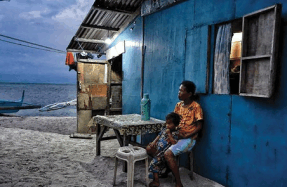SETTING THE STAGE


ON 19 FEBRUARY 2019, Eidgah ke Jinnat, a Hindustani translation of Abhishek Majumdar’s play Djinns of Eidgah, was scheduled to be performed at Jaipur’s Jawahar Kala Kendra. But, before the play could begin, a group of protesters stormed the venue. The mob did not stop at protesting and seemed determined to assault the artists, forcing Majumdar and others in the troupe to flee. The show was cancelled.
On the previous night, the play had opened to a full house. The next morning, the local Hindi daily Dainik Bhaskar reported that the Indian army was referred in the play to as “vahshi,” or barbaric, and that there were objectionable references to the Hindu deity Hanuman. With the 2019 Lok Sabha elections approaching, Hindu-nationalist organisations had created a charged atmosphere following the Pulwama attack the previous week, in which 40 Central Reserve Police Force personnel were killed. The report incited a fringe right-wing group to organise a protest and force the play’s cancellation. Overnight, Majumdar travelled back to his home in Bengaluru. A few days later, he wrote on Facebook:
I promise you; this play will be staged in theatres, roads, streets, corners, houses and markets. We the team of Eidgah Ke Jinnat, which comprises of people from at least 6 states and 9 languages, thank you for telling us, that the idea of India needs to be saved from you. Thank you for giving us purpose. Thank you for giving us in the theatre our greatest fuel. Resistance.

While this was the first time Majumdar received a wider limelight outside of theatre circles, he has been making theatre on urgent sociopolitical issues for more than a decade. Several of his plays have been about conflicts in South Asia—from Kashmir and the Tamil liberation movement in Sri Lanka to the Chinese occupation of Tibet. Djinns of Eidgah is one of three plays he has made on Kashmir. His sympathies invariably lie with ordinary people living in conflict-ridden places, as he explores the ways in which violence affects their lives
Majumdar’s diverse oeuvre includes classically structured historical plays that often illuminate contemporary politics, such as Muktidham, Kaumudi and Tathaghat. He has also written monologues, plays for children and plays for site-specific and street performances. As a director, in addition to his own plays, Majumdar has also devised works and plays written by others.
Majumdar has written plays in three different languages: Hindi, English and Bengali. His plays have also successfully travelled to multiple countries. “The likes of Mahesh Elkunchwar, Girish Karnad, Vijay Tendulkar, Badal Sircar have drawn on Indian mythology or contemporary Indian politics and society to create their characters, and mostly wrote in one Indian language,” Anmol Vellani, the founder of the India Foundation for the Arts, told me, referring to some of India’s legendary playwrights. “But we cannot call Abhishek an Indian playwright, I think we have to call him a global playwright. Because, he has written plays set in London, in Germany, and now also in Tibet. He has this wonderful ability to move between languages and contexts.” Majumdar’s plays have been translated into French, Spanish, Czech, Marathi, Hindi, Bengali, Kannada and Kashmiri.
I met Majumdar for the first time in the foyer of Bengaluru’s Rangashankara theatre during an annual theatre festival in October 2011. Since then, I have been an ardent admirer and have closely followed his work, attended his training workshops, been an observer in many rehearsals and made a documentary film on the making of one of his plays. His plays are based on rigorous research, which, apart from academic reading, involves travelling to conflict-ridden places and conducting extensive interviews. In many of his plays, Majumdar contemplates the future of trouble-stricken communities through the aspirations and tribulations of young characters. Whether it is Bilal’s ambition of going to Brazil to play football in Djinns of Eidgah or Niromi blindly following her friend’s chosen path of a rebel fighter in Afterlife of Birds, their childlike innocence reveals the complexity of everyday life in troubled regions.
“Abhishek’s work is an altogether larger enterprise, which encompasses not only the angst-ridden middle class of Mohan Rakesh, Tendulkar and Badal Sircar, but the conflicts that are changing the world,” the theatre critic Shanta Gokhale told me. “I would say he is carrying on where Girish Karnad left off in Tughlaq and Taledanda.” According to Gokhale, Majumdar is not fighting a social battle but “writing politically to intervene in the polarisations we see around us and create a third, humanistic way.”
ON A SUMMER EVENING in 2019, I met Majumdar in his office on the outskirts of Bengaluru. He ordered food—chicken shawarma and biryani—and warned me, “Kuchh imaginative sawal poochhna, wahi ghisa-pita nahin”—Ask me some imaginative questions, not the usual hackneyed ones.
We began talking about his family’s history. Majumdar was born in Delhi to a Bengali couple, both of whom worked in Jawaharlal Nehru University. His father worked in the administrative department as a hostel warden, and his mother worked in the library.
Majumdar’s paternal family hails from Noakhali, now in Bangladesh. His grandfather, Kaminikanto Majumdar, was a surgeon and professor at Dhaka Medical College. His father’s uncle Mohinimohan Majumdar was an Islamic scholar and wrote a book called , chronicling his travels to the country. Partition forced his family to move westwards, and they briefly lived as refugees near Calcutta. During a discussion on hunger in a rehearsal, he recalled how his family, even though they had nothing to
You’re reading a preview, subscribe to read more.
Start your free 30 days





